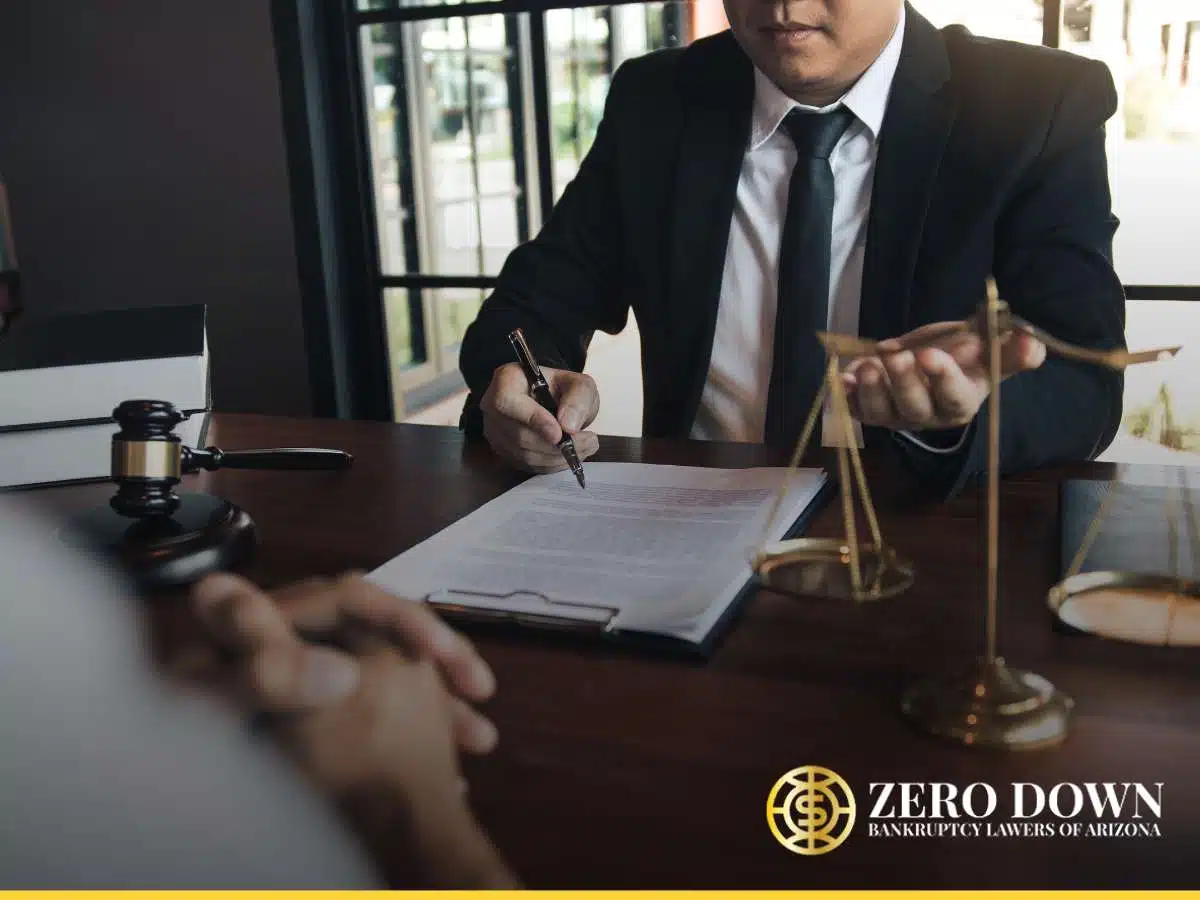Some people struggle with addictions that are based on behavior rather than ingesting a substance. But when it boils down to it, all addictions are dependent on consumption that is no longer healthy for the user. Another thing that addictions share in common is that they tend to be expensive. It’s easy to see how a gambling addict could quickly amass debts that they are unable to pay. The question for that person struggling with a gambling addiction may become, “Will bankruptcy be able to help me?” For your free consultation with our Arizona bankruptcy team, call 602-609-7000.
Compulsive Gambling
Gambling addiction also goes by the names “compulsive gambling” and “gambling disorder.” The Mayo Clinic lists some signs that can be observed in self and others when there is suspicion of a gambling problem:
- Constant preoccupation with gambling, whether it be planning where to gamble next or how to get the money to do it
- Chasing losses, or trying to rewin lost gambling money by betting even more
- Failed attempts to curb or quit gambling
- Lying to friends and family members about gambling habits
- Risking relationships, jobs, school opportunities, and more to gamble
- Feelings of restlessness and irritability when not gambling
- Gambling as a way to escape anxiety and depression
- Asking others for financial assistance to deal with gambling debts
Risk Factors
People with addiction issues also tend to have issues with depression, anxiety, and personality disorders. Gambling addiction has also been shown to be associated with ADHD, OCD, and bipolar disorder. Medications that treat conditions like restless legs It doesn’t just have to be a disorder- people who have traits like competitiveness, restlessness, or being bored easily are also more likely to develop a gambling problem. Age is also a risk factor for compulsive gambling. While much associates gambling addictions with older individuals, the younger someone starts gambling, the more likely they are to develop an addiction to it.
Men have been shown to exhibit more signs of gambling addiction than women. However, women who do have gambling issues tend to start older and become addicted more quickly. If you are surrounded by people who have gambling problems, i.e., your friends and family members, you will be more likely to develop compulsive gambling as well.
Treating Gambling Addiction
Therapy is key to treating gambling addiction. Behavioral therapy and cognitive therapy tend to be useful in treating compulsive gambling. Family therapy can also be useful if the gambling addiction has caused rifts in relationships between family members. Group sessions like Gamblers Anonymous can also help someone who is struggling with a gambling addiction. You can find more information about Gamblers Anonymous here.
Because cognitive and mood disorders so often play a role in gambling addiction, therapy isn’t always enough to treat it. Some may need medications to help curb the compulsions brought on by a gambling disorder. Antidepressants can be helpful if anxiety and/or depression are contributing to the problem. In some cases, narcotic antagonists can be used, which are medications used to curb substance abuse.
Someone who is trying to recover from a gambling addiction needs to be very careful in their choice of surroundings. Relationships that are based solely on gambling may need to be put on hold during the recovery process. If a gambling addict works at a place like a casino or a sports betting lounge, it may be time to find a new place of employment.
Types Of Gambling Debts & How Bankruptcy Affects Them
Credit Cards
Internet gambling like online sports betting and poker is increasing in popularity and general acceptance, as you may now see commercials for these services during prime-time broadcasts. Many of these websites require users to submit their credit card information to sign up for an account. They may even entice potential customers with sign-up bonuses that seem too good to be true. Some may be able to place an initial bet, cash out on the bonus, and walk away. For others, it isn’t so easy. After initial sign-up incentives have been spent, a gambling addict may begin accruing debt at a rapid rate.
Credit cards can be useful for building credit history but can be dangerous in many ways. First of all, once a credit card user has maxed out one card, they can usually apply for one or more other cards. This process can be rinsed and repeated until the user has several thousand dollars in credit card debt. This also poses a problem because these credit cards could all be accruing interest at a relatively high rate.
Credit card debt is unsecured nonpriority debt. That means it will be cleared away, subject to certain limitations, in a Chapter 7 bankruptcy case. In a Chapter 13 bankruptcy, credit card debts are only paid off to the extent that the debtor’s disposable monthly income allows.
Cash Advances
Some gambling is done in person and can’t be paid for with credit cards directly. However, many credit cards allow users to withdraw cash from their credit card balance. Cash advances are treated more strictly in bankruptcy and can’t be used in excess for a shorter period of time leading up to the bankruptcy filing.
Personal Loans
Someone struggling with gambling may take out personal loans for the purposes of gambling, or the purposes of paying off debts to more formidable creditors. Personal loans, like credit cards, are generally unsecured nonpriority debts. That makes them dischargeable in Chapter 7 bankruptcy and among the last debts to be paid in a Chapter 13 bankruptcy payment plan.
It can be awkward to discharge a personal loan in bankruptcy if your creditor is someone close to you, like a friend or relative. There is no option to leave debts out of your bankruptcy based on personal preference. Additionally, repaying these types of loans before bankruptcy in favor of the rest of your debts can cause issues throughout your case. However, bankruptcy only wipes out your legal obligation to repay a debt, not your moral obligation. You can repay personal lenders after your bankruptcy has been discharged, but that creditor will no longer have the right to pursue repayment in court. But if your gambling debts are to creditors like those shown in Hollywood, you can expect a negative reaction to a bankruptcy filing.
Arizona Bankruptcy Lawyers Prepared To Deal With Complex Debt Situations
Debt is a stressful situation, whether it’s caused by gambling or other circumstances. When creditors are breathing down your neck, it may feel like there’s nowhere to turn. But bankruptcy provides powerful protections that may be able to assist someone struggling with gambling debts. It can stop creditors from repossessing your vehicle, foreclosing your home, filing a lawsuit against you, garnishing your wages, and more. But mistakes in your petition could create complications that result in asset seizures, extra costs, delays, and more. Arizona Zero Down Bankruptcy can make sure every step of your bankruptcy filing goes according to plan. We also offer affordable rates with payment plan options. Eligible clients can pay for their attorney’s fees after their case has been filed. To learn more, contact us to schedule your free consultation or call us at 602-609-7000.
Arizona Offices
Phoenix Location:
343 W Roosevelt Street, Suite #100
Phoenix, AZ 85003
Email: [email protected]
Phone: 602-609-7000
Mesa Location:
1731 West Baseline Rd., Suite 101
Mesa, AZ 85202
Email: [email protected]
Glendale Location:
20325 N 51st Avenue, Suite #134
Glendale, AZ 85308
Email: [email protected]
Tucson Location:
2 East Congress, Suite #900
Tucson, AZ 85701
Email: [email protected]










